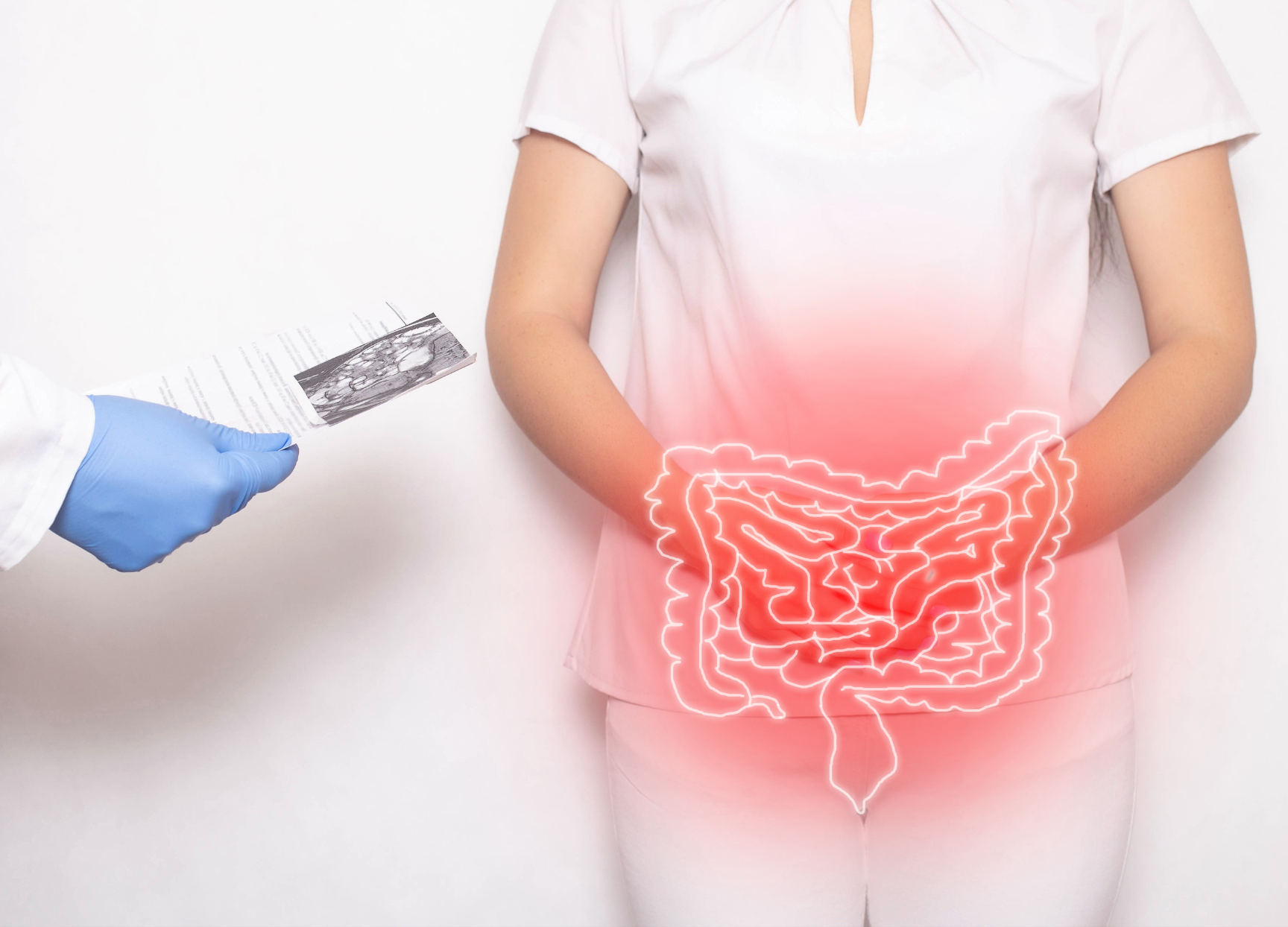
Key facts
- Ulcerative colitis (UC) is a type of inflammatory bowel disease.
- Ulcerative colitis is an autoimmune condition — this means that it’s caused by a problem with your immune system.
- Symptoms can include abdominal (tummy) pain, diarrhoea and blood and mucus in your stool (poo).
- Treatments are available to reduce the inflammation, treat your symptoms and help prevent complications.
What is ulcerative colitis?
Ulcerative colitis (UC) is an inflammatory bowel disease. It’s sometimes referred to simply as ‘colitis’.
Ulcerative colitis causes inflammation in your large bowel and rectum. This can lead to symptoms such as abdominal pain and diarrhoea.
Inflammatory bowel disease can develop at any age, but usually first appears in people aged 15 to 30 years.
What are the symptoms of ulcerative colitis?
Symptoms tend to vary between individuals. Symptoms also come and go over time, as the inflammation flares up then eases again.
Symptoms of ulcerative colitis can include:
- diarrhoea
- mucus and blood in your stool (poo)
- abdominal (tummy) pain
- the need to open your bowels urgently
- fatigue
- reduced appetite
- weight loss
What causes ulcerative colitis?
Ulcerative colitis is an autoimmune condition — this means that there is a problem with your immune system.
The exact cause of ulcerative colitis isn’t known. But it’s known that genetics, infections and other environmental factors are important.
Eating highly processed foods and a diet that is high in refined sugar and low in fibre may also increase your risk of developing inflammatory bowel disease. These factors may also increase your risk of symptom flare ups.
While stress and some foods can trigger symptoms, ulcerative colitis isn’t caused by diet or stress alone.
The difference between ulcerative colitis and Crohn’s disease
Crohn’s disease is also an inflammatory bowel disease (IBD). These 2 diseases affect the digestive tract differently.
- Ulcerative colitis only affects your large bowel (colon and/or rectum), and inflammation is only in the surface layers of your bowel lining. It causes ulcers (tiny, open sores) to form in the lining of your bowel.
- Crohn’s disease can affect any part of your digestive tract, from your mouth to your anus (back passage). Inflammation can extend through the entire thickness of your bowel wall.
When should I see my doctor?
See your doctor if you have any symptoms of ulcerative colitis. Your doctor may refer you to a gastroenterologist (specialist doctor) for diagnosis and treatment.
Go to your nearest hospital emergency department or call triple zero (000) for an ambulance if you:
- feel very unwell with diarrhoea (especially if you are going many times a day and there is blood in your stool)
- have a fever
How is ulcerative colitis diagnosed?
Your doctor will ask about your symptoms and health in general. They will also examine you.
Your doctor or specialist may recommend some or all of the following tests to help diagnose ulcerative colitis.
- Blood tests — can show inflammation and any vitamin or mineral deficiencies.
- A stool sample — can be tested for faecal calprotectin, to show if there’s inflammation in your bowel. Stool samples are often tested for infection as well.
- A colonoscopy (or flexible sigmoidoscopy) —where a thin, flexible tube that contains a tiny camera looks inside your bowel for ulcers, inflammation and bleeding.
- Biopsies (small samples of tissue) — may be taken from inside your bowel during a colonoscopy. These are examined under a microscope to look for signs of disease.
- Imaging tests, such as an x-ray, MRI scan or CT scan — may also be recommended.
How is ulcerative colitis treated?
There is no known cure, but treatment can help:
- treat your symptoms
- reduce your inflammation
- prevent complications
Medicines
Medicines commonly used to control inflammation in UC include:
- corticosteroids
- 5-aminosalicylates
- medicines that suppress your immune system
- biological medicines
Nutrition
Your doctor or specialist may also suggest avoiding certain foods and food additives.
You may also be advised to take a dietary supplement, to boost your:
- iron levels
- vitamin D
- calcium
Lifestyle measures
To keep healthy consider:
- avoiding any foods that make your symptoms worse
- exercising regularly to lift your mood and help relieve stress
- learning some relaxation techniques to help manage stress
- joining a support group
Surgery
If your UC is severe and doesn’t respond to medicines, your doctor may recommend surgery to remove your colon. A ‘pouch’ is then created inside your body using the end of your small intestine. This pouch is connected directly to your anus.
Another option is to create a temporary or permanent stoma. This is an artificial opening in your abdominal wall (tummy) that diverts faeces into a bag. It’s normal to feel uneasy about the idea of living with a stoma, but it often improves your quality of life.
Can ulcerative colitis be prevented?
While you can’t prevent ulcerative colitis, you can help prevent flare-ups and complications by taking your medicines and maintaining a healthy lifestyle.
Complications of ulcerative colitis
Some people with colitis can develop inflammation in other parts of the body, such as the:
- liver
- skin
- joints
- eyes
In the long-term, UC is associated with an increased risk of developing bowel cancer. Your doctor will recommend regular bowel cancer screening with colonoscopies.



